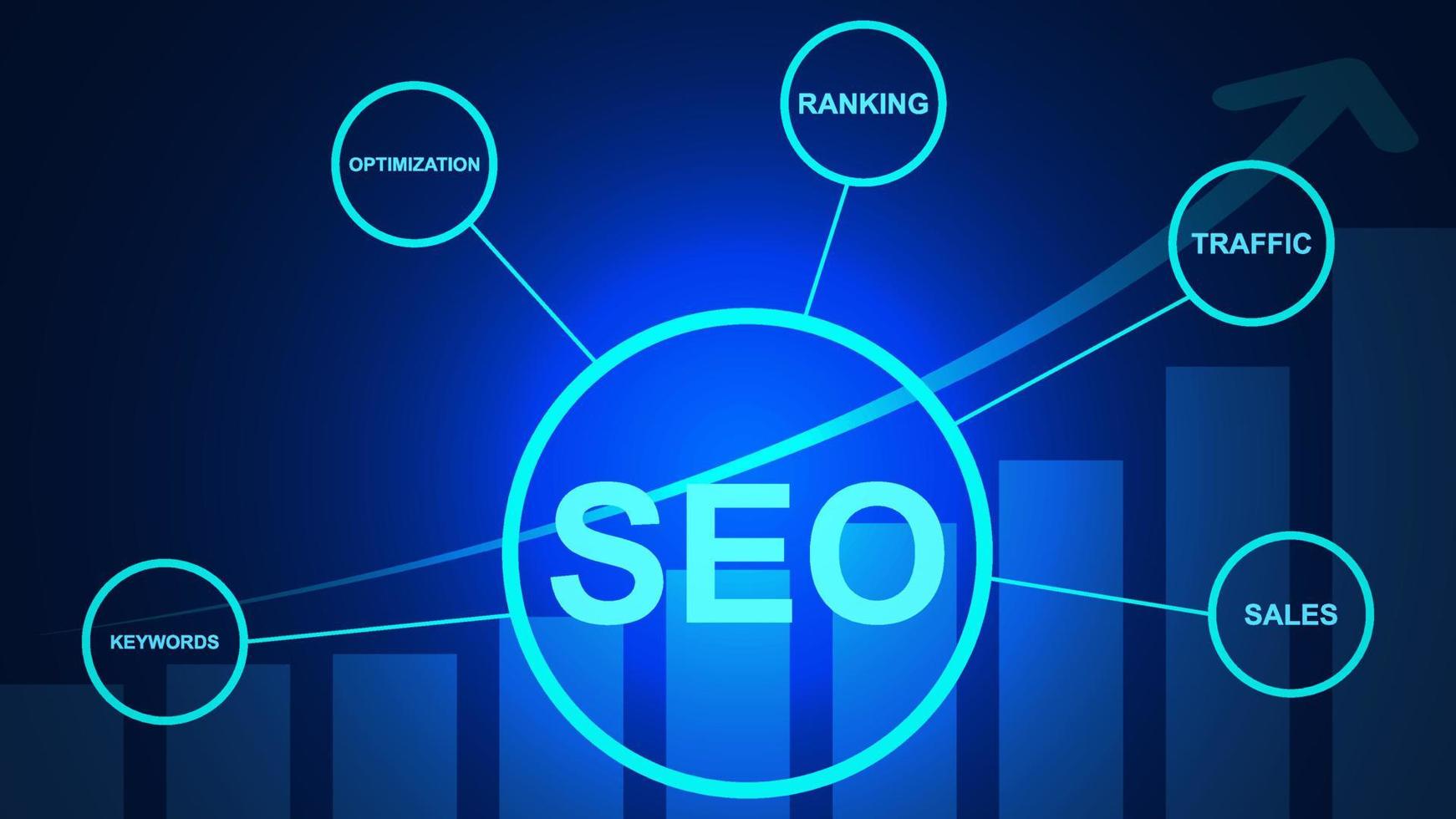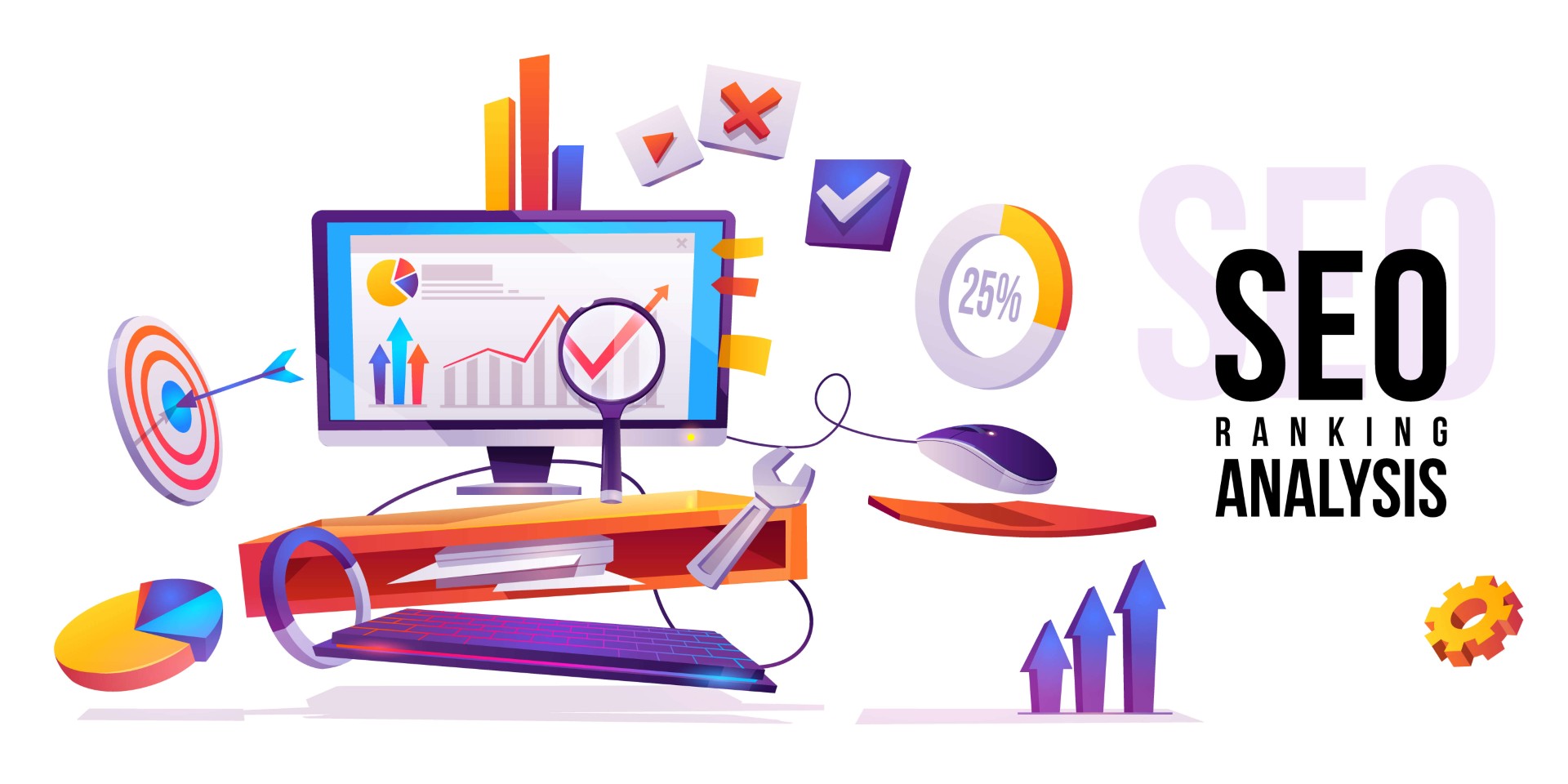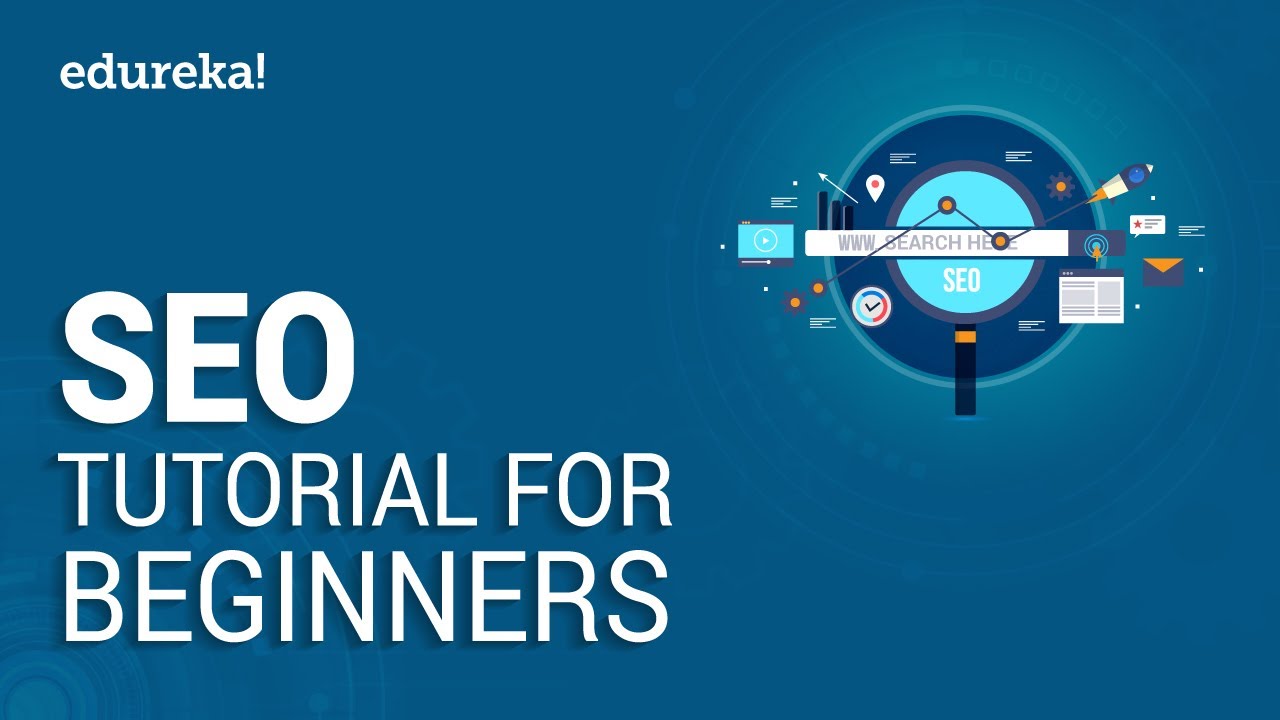In the digital age, an effective online marketing seo strategy isn’t just about creating a website and hoping for the best. It’s about ensuring that your online presence is discoverable to your target audience. Search Engine Optimization (SEO) remains at the heart of this endeavor, functioning as the compass that guides users to your digital doorstep. This comprehensive guide is your map to navigating the complex yet rewarding world of online marketing SEO. Whether you’re a small business owner, a digital marketing enthusiast, or a startup looking to expand your reach, we’ll explore strategies that can transform your online presence.
Mục lục
- 1. Introduction to Online Marketing SEO
- 2. Key Elements of Effective Online Marketing SEO
- 2.1. Keyword Research and Optimization
- 2.2. Content Quality and Relevance
- 2.3. Technical SEO
- 2.4. Backlink Building
- 2.5. Measuring and Analyzing SEO Performance
- 2.6. Keyword Research and Targeting
- 2.7. On-Page Optimization
- 2.8. Off-Page Optimization
- 2.9. Local SEO
- 2.10. Continuous SEO Education
- 2.11. Technical SEO
- 3. Advanced Strategies for Online Marketing SEO
- 4. Conclusion
Introduction to Online Marketing SEO

Search Engine Optimization is the process of enhancing the quality and quantity of website traffic by increasing the visibility of a website to users of a web search engine. In simpler terms, it’s about getting your site to rank higher in search engine results pages (SERPs) for relevant queries.
The first step in any successful SEO strategy is understanding your audience and what they are searching for online. This involves thorough keyword research to identify the terms and phrases your target customers use when looking for products or services similar to yours. By integrating these keywords into your website’s content, metadata, and URLs, you can make your site more relevant to these searches, thereby increasing your chances of ranking higher in SERPs. However, it’s crucial to strike a balance between keyword optimization and natural readability to ensure that your content remains engaging and valuable to your visitors.
Definition of Online Marketing SEO
At its core, online marketing SEO involves the strategic implementation of various techniques to ensure your digital content appears as early as possible in search results. This includes optimizing the content itself, ensuring the website’s technical aspects are search engine friendly, and building a network of backlinks from high-quality websites to increase your domain authority.
The Importance of SEO in Online Marketing
Without SEO, even the most innovative websites can remain invisible. The majority of online experiences begin with a search engine, making it crucial for your business to be prominently featured. A strong SEO strategy can:
- Attract a highly-targeted audience
- Increase website traffic
- Raise brand awareness
- Build credibility and trust
- Drive higher conversion rates
Key Elements of Effective Online Marketing SEO

To build a successful SEO strategy, you must have a strong understanding of the key components that contribute to its effectiveness. Here are the cornerstones of a robust online marketing SEO approach.
Keyword Research and Optimization
One of the foundational steps in creating a successful SEO strategy is conducting comprehensive keyword research. This involves identifying the terms and phrases that potential customers are using to search for products or services in your niche. By understanding these search queries, you can optimize your website’s content, titles, meta descriptions, and even URLs to align with the search intent of your audience. Effective keyword optimization not only helps improve your site’s ranking in SERPs but also ensures that the traffic coming to your site is more relevant and likely to convert.
Content Quality and Relevance
Content is king in the realm of SEO. High-quality, relevant content that addresses the needs and interests of your audience is pivotal to keeping visitors engaged and encouraging repeat traffic. This means creating informative, valuable, and unique content that stands out from the competition. Whether it’s blog posts, product descriptions, how-to guides, or video content, ensuring that your content is optimized for both search engines and human readers can substantially boost your SEO efforts.
Technical SEO
The backend of your website plays a significant role in how search engines index and rank your site. Technical SEO encompasses a range of optimizations that make your website easier for search engines to crawl and index. These include improving page speed, making your site mobile-friendly, ensuring secure connections through HTTPS, and creating an XML sitemap. By addressing these technical aspects, you can enhance the user experience and support your site’s SEO performance.
Backlink Building
Backlinks, or inbound links from other websites, signal to search engines that others vouch for your content. The quality and quantity of backlinks to your website are crucial factors in SEO. High-quality backlinks from reputable sites in your industry can significantly enhance your site’s authority and improve its position in search engine rankings. Establishing relationships with influencers, guest blogging, and creating shareable content are effective strategies for building a healthy backlink profile.
Measuring and Analyzing SEO Performance
Lastly, no online marketing SEO strategy is complete without the means to measure and analyze its performance. Tools like Google Analytics and Google Search Console offer profound insights into your website’s traffic, engagement metrics, and how visitors interact with your content. Regularly monitoring these metrics allows you to identify trends, understand what’s working, and make informed adjustments to continually optimize your SEO strategy.
By integrating these key elements into your online marketing efforts, you can develop a comprehensive SEO strategy that enhances your digital presence, attracts more qualified traffic to your site, and ultimately, drives conversions.
Keyword Research and Targeting
Keyword research is the process of identifying the terms and phrases your audience uses when they’re searching for information online.
Importance of Keyword Research
Comprehensive keyword research is the bedrock of any SEO strategy. It helps:
- Uncover the language of your target market
- Understand user intent
- Reveal topics and questions to address in your content
Identifying High-Value, Relevant Keywords
The goal is to find keywords with a high search volume and relevance to your business, but not all high-volume keywords are valuable. You also need to consider the level of competition and your potential for ranking.
Optimizing Content for Target Keywords
Once you’ve identified the right keywords, you need to use them strategically in your content. This involves:
- Natural incorporation of keywords in titles, headings, and throughout the text
- Avoiding keyword stuffing, which can be penalized by search engines
- Using variations of your target keywords to cover the breadth of user intent
On-Page Optimization
On-page SEO refers to the factors you can control on your website to improve its search engine visibility.
Title Tags and Meta Descriptions
These are HTML attributes that you can customize to provide succinct and enticing summaries of your web pages. They are not just for search engines; they also influence user behavior.
Header Tags (H1, H2, H3)
Use header tags to structure your content. They not only make it easier to read but also signal the importance of certain sections to search engines.
Content Structure and Formatting
Well-organized and readable content that includes your target keywords will perform better in search results and provide a better user experience.
Image Optimization
Images on your site can also be optimized for search engines by using descriptive filenames and alt text to improve accessibility.
Internal Linking
Linking to other pages on your site is a good way to spread authority and help search engines understand the structure of your website.
Off-Page Optimization
Off-page SEO involves factors that occur outside of your website but still significantly impact your ranking.
Social Media Engagement
Engaging with potential customers on social media platforms can indirectly boost your SEO efforts. Sharing your content on social media can increase its visibility and generate more traffic to your website. Additionally, social signals, though not a direct factor in search engine rankings, can indicate to search engines that your content is valuable and relevant to your audience.
Influencer Collaboration
Collaborating with influencers, especially those in your industry or niche, can amplify your content’s reach and generate high-quality backlinks to your site. Influencers already have an engaged audience that trusts their recommendations, so getting a shoutout or having your content shared by them can significantly increase your website’s visibility and credibility.
Local SEO
For businesses that operate on a local level, such as brick-and-mortar stores or services in a specific city, local SEO is crucial. It involves optimizing your website for local search queries and includes:
Google My Business
Claiming and optimizing your Google My Business listing is essential. It allows you to appear in local search results for queries specific to your products or services. Ensure your listing includes accurate information, such as your business hours, location, and services offered.
Local Citations and Reviews
Building local citations, which are mentions of your business on other websites like directories, and encouraging reviews from customers can enhance your presence in local search results. Positive reviews not only increase your business’s visibility but also enhance its reputation online.
Continuous SEO Education
SEO is a constantly evolving field, with search engines regularly updating their algorithms. Staying informed about the latest SEO trends and changes is critical for maintaining and improving your website’s ranking over time. This involves:
Keeping Up with Industry News
Subscribe to SEO news websites, blogs, and forums to stay updated on the latest trends and algorithm updates from major search engines.
Attending Webinars and Conferences
Participate in SEO-related webinars and conferences to learn from industry experts and network with other SEO professionals.
Experimenting and Learning from Analytics
Regularly testing different SEO strategies and analyzing the outcomes using analytics tools can provide insights into what works and what doesn’t, allowing you to refine your SEO approach continuously.
By implementing these advanced SEO strategies and staying committed to ongoing learning and adaptation, you can significantly improve your website’s search engine ranking, drive more qualified traffic, and achieve greater online success.
Link Building Strategies
Backlinks from authoritative sites are one of the most powerful ranking factors. Develop a strong link-building plan that focuses on quality over quantity.
Guest Posting and Content Syndication
Creating and sharing content on other websites can help you build relationships and earn valuable backlinks.
Social Media Presence and Engagement
While social signals don’t have a direct impact on rankings, social media is a great way to distribute content and attract backlinks.
Online Reputation Management
Your online reputation, including reviews and mentions, can impact your SEO. Monitor your brand’s online presence and address any negative feedback.
Technical SEO
Technical SEO focuses on the backend elements of your website that influence its search engine rankings.
Technical SEO covers aspects such as site speed, mobile optimization, and secure connections which are essential for providing a good user experience and improving your site’s visibility on search engine results pages (SERPs). By ensuring your website is fast, accessible on all devices, and secure, you can significantly decrease bounce rates and enhance user engagement.
Site Speed
A fast-loading website is crucial for retaining visitors and improving your rankings. Utilize tools like Google’s PageSpeed Insights to identify and rectify issues that may be slowing down your site.
Mobile Optimization
With an increasing number of searches conducted on mobile devices, having a mobile-friendly website is no longer optional. Google’s mobile-first indexing means the mobile version of your site is considered the primary version. Ensure your site is responsive and provides a seamless experience across all device types.
Secure Connections (HTTPS)
Switching your site to HTTPS by obtaining an SSL certificate not only secures user data but also contributes positively to your site’s SEO. Search engines favor secure sites, and users are more likely to trust and complete transactions on websites that are encrypted.
By addressing these technical SEO elements, you can create a solid foundation for your website that not only appeals to search engines but also provides a positive, secure, and engaging user experience.
Website Structure and Architecture
A clear and logical website structure helps search engines understand your content and improves user experience.
Site Speed Optimization
Fast-loading websites provide a better user experience and are favored by search engines.
Mobile-Friendliness
With more searches now taking place on mobile devices, having a responsive website design is critical for SEO.
Indexation and Crawlability
Ensure search engines can easily find and index your web pages by submitting a sitemap and addressing any crawl errors.
Advanced Strategies for Online Marketing SEO

In the maturing landscape of SEO, staying ahead requires a deep understanding of advanced strategies.
Leveraging the power of artificial intelligence and machine learning is becoming increasingly important in the realm of SEO. These technologies allow for the automation of mundane tasks, provide insights into user behavior, and can even predict future trends. By integrating AI into your SEO strategy, you can more efficiently analyze large sets of data, discern patterns, and make informed decisions to improve your website’s ranking. Furthermore, AI-driven content tools can help in creating content that is not only highly relevant to your audience but also optimized for search engines. With search algorithms themselves becoming more reliant on machine learning to understand and rank content, keeping pace with these technologies ensures your SEO strategy remains effective and forward-thinking.
Content Marketing Integration
SEO and content marketing are two sides of the same coin. Integrating these strategies can supercharge your results.
Incorporating SEO into Content Creation
Select keywords before you begin writing to guide the creation of content that’s optimized for search.
Leveraging Content to Earn Backlinks
Develop content that others want to link to—this is often informative, well-researched, and unique.
Optimizing Content for Search Intent
User intent should dictate the type of content you create. Are users looking for information, a product, or a service?
Local SEO for Businesses
Local SEO is crucial for businesses targeting customers in specific geographic areas. It involves optimizing your online presence to appear in local search results, which is particularly important for businesses with physical locations or those serving particular cities or regions.
Google My Business Optimization
Claiming and optimizing your Google My Business (GMB) listing is a fundamental step in any local SEO strategy. Ensure that your business information is accurate, complete, and up-to-date, including your business name, address, phone number, and operating hours. Regularly update your GMB profile with new photos, offers, events, and respond to customer reviews to improve your visibility and engagement.
Local Keywords
Incorporate location-specific keywords into your website’s content, meta tags, and URLs. This helps search engines understand where your business operates and increases your visibility in local search queries.
Local Link Building
Building links from locally relevant sites, such as local business directories, community portals, and local news sites, can strengthen your local SEO efforts. These backlinks signal to search engines that your business is a relevant and integral part of the local community.
By focusing on these local SEO tactics, businesses can enhance their visibility in local search results, attract more local customers, and ultimately increase their market share in their specific geographic area.
Local SEO is about increasing search visibility for businesses that serve their communities face-to-face.
Optimizing for Local Search
Include location-based keywords, and ensure your business is listed in local directories and Google Maps.
Google My Business Optimization
Create or claim your Google My Business listing and keep it updated with accurate information and engaging content.
Citations and Directory Listings
Consistent and accurate local citations help search engines verify the existence and legitimacy of your business.
Leveraging Analytics and Reporting
To fully harness the power of your SEO and online marketing efforts, leveraging analytics and reporting tools is essential. These tools offer invaluable insights into your website’s performance, visitor behaviors, and conversion rates. By closely monitoring key performance indicators (KPIs), you can identify areas of success and pinpoint opportunities for improvement.
Utilizing Google Analytics
Google Analytics is a fundamental tool for tracking and analyzing website traffic. It provides detailed reports on your audience, how they interact with your site, and what actions they take. By understanding these metrics, you can optimize your content and structure to better meet the needs of your visitors.
SEO Reporting Tools
Investing in SEO reporting tools can automate the tracking of your website’s rankings, backlinks, and keyword performance. These reports not only save valuable time but also provide deep insights that can inform your strategy and help you stay ahead of competition.
A/B Testing
Conducting A/B testing on different aspects of your website, from landing pages to call-to-action buttons, allows you to refine user experience and increase conversion rates. Through continuous testing and adjustment, you can ensure your website is fully optimized to meet your business goals.
By integrating these analytics and reporting strategies into your SEO efforts, you establish a data-driven approach to decision making. This not only enhances your website’s performance but also significantly boosts your overall online marketing efficacy. Remember, the goal is not just to attract traffic, but to convert that traffic into engaged customers and leads.
Data is the compass that guides an effective SEO strategy. Use analytics to track progress and make informed decisions.
Tracking and Analyzing SEO Performance
Monitor key metrics like organic traffic, keyword rankings, and backlink profile using tools like Google Analytics and Search Console.
Identifying Areas for Improvement
Analyze your data to identify underperforming areas and develop actionable insights.
Adapting Strategies Based on Data Insights
Use your analysis to refine your strategy continually, keeping your site agile in the face of changing search engine algorithms.
Measuring and Improving Online Marketing SEO

Measuring your SEO efforts is essential to understand the impact and effectiveness of your strategies.
Key SEO Metrics and KPIs
Focus on metrics like organic traffic, keyword rankings, and conversion rates to gauge SEO success.
Continuous Optimization and Refinement
SEO is an ongoing process. Regularly review and refine your strategy to keep up with changes in the digital landscape.
Monitoring Algorithm Updates
Search engines regularly update their algorithms. Stay abreast of these changes and adjust your strategy accordingly.
Implementing Iterative Improvements
Adopt a continuous improvement mindset. Small, iterative changes can have a huge impact on your SEO over time.
Engaging with Your Audience Through Content Marketing
An essential component of a successful SEO strategy involves content marketing. Creating valuable, relevant, and consistent content attracts and engages a clearly defined audience, ultimately driving profitable customer action. By understanding the needs and questions of your target market, you can create content that appeals directly to them.
Crafting High-Quality Content
Focus on creating high-quality content that provides real value to your audience. This could be through informative blog posts, engaging videos, insightful infographics, or comprehensive guides. Content that answers questions or solves problems is more likely to be shared, increasing your visibility and backlink profile.
Content Distribution and Promotion
Creating great content is only the first step; promoting your content through various channels is equally important. Utilize social media, email newsletters, and other platforms to distribute your content to a wider audience. Engage with your community by responding to comments and participating in discussions.
By integrating content marketing into your SEO strategy, not only do you enhance your search engine rankings but also build a loyal customer base that sees your brand as an authority in your field. Remember, content is king in the digital world; by prioritizing quality and relevance, you can significantly improve your SEO outcomes.
Staying Ahead of the Competition
Competitive analysis is critical. Understand what your competitors are doing well and where they fall short.
Understanding the landscape of digital marketing goes beyond just improving your website’s SEO and involves a holistic approach to increase your online presence. Engaging with your audience on social media platforms, creating high-quality content that provides value, and employing email marketing strategies to nurture leads can significantly augment your SEO efforts. Each digital marketing channel you activate serves as another point of contact with your audience, increasing your brand’s visibility and credibility. Furthermore, integrating these channels allows for a unified marketing strategy, where SEO and digital marketing efforts reinforce and amplify each other. By constructing a comprehensive approach that spans across various digital marketing facets, businesses can create a robust online presence that captivates and engages their target audience effectively.
Conclusion

Online marketing SEO is a multifaceted discipline that requires strategic thinking, consistent effort, and a willingness to learn and adapt. When executed properly, it has the power to transform your online presence, drive valuable traffic to your site, and connect you with the audience that matters most.
Investing in online marketing SEO is an investment in the future of your business. By following the strategies outlined in this guide and staying committed to the process, you can enhance your visibility, outpace your competitors, and build a robust online presence that stands the test of time.
Remember, SEO is not a one-time project but an ongoing strategy. It evolves with the changing algorithms and the shifting sands of the digital marketplace. Keep experimenting, keep analyzing, and most importantly, keep optimizing. Your future customers are searching for you—ensure that they can find you. If you need a guiding hand or a team of experts, don’t hesitate to engage with specialized professionals. Start your SEO journey now and unlock the full potential of your online marketing efforts!
